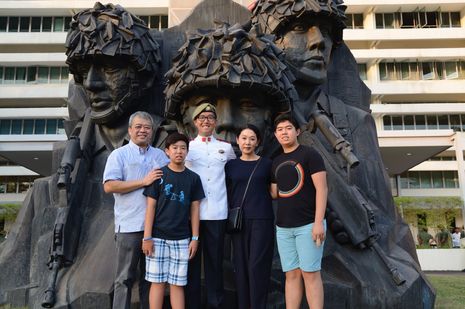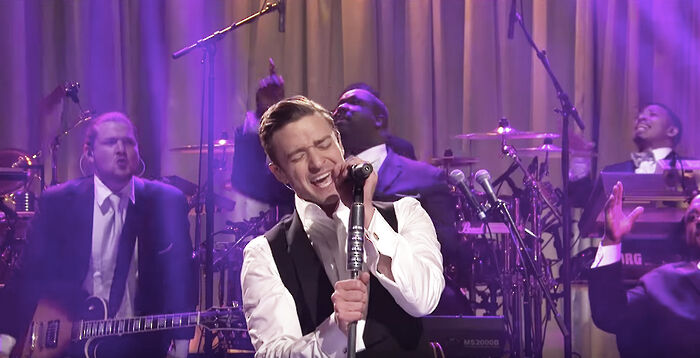My time in the military
Jonathan Chan recounts his days in the military and what that has taught him

Content Note: This article contains detailed discussion of violence and life in the military.
It’s been three years since I left the military.
On my last day of service, I reported to my unit’s office to collect my pink identification card. The office itself was vacant – the troopers I’d had under my charge were at the airport getting ready for an exercise in Thailand. Retrieving one’s identification card represents reentry into civilian life in Singapore, not least because it is replaced by a military identification card when one enlists. The last day is often one of inexorable relief, an alleviation to the crushing monotony and weight that most Singaporean boys feel during their two years of compulsory service in the Singapore Armed Forces.
At any given point in time, there are at least 45 000 conscripts, all at the precipice of adulthood, who have enlisted. They perform duties ranging from clerical work to security patrols, warfare training to technical maintenance. Some enlist into the police or civil defense force to fight crime or fires. A family friend once called it an experience defined by sacrifice, in which one is forced to give up one’s time, education, work, and wages for a greater purpose.
It is in common parlance in mature colleges to exchange stories of what one did before arriving in university. Given that all undergraduates must be 21 on the day of their matriculation, it is invariable that every person has a different experience to offer in conversation. Recounting my military experiences to my British counterparts in Wolfson was often met with a mix of awe and curiosity, something that became a source of bemusement to me. Perhaps that attests to the militarisation of Singaporean culture, one in which trading army tales is a normal way for men of any age to establish a sense of rapport.
“The last day is often one of inexorable relief.”
I’ve often heard remarks that Britain should consider reinstating a policy of national service as a way of cultivating civic-mindedness and helping to dismantle the increasingly ossified boundaries of class and race. A friend suggested other forms of public service apart from the military – two years as a sanitation worker, for instance. Given the long shadow cast by British militarism, one that sustained centuries of colonial violence and, more recent ly, evidence of torture in the Middle East, that sounded like a palatable alternative. It was one pursued by friends I made at Wolfson in places such as Finland and Denmark.
I was the first person in my immediate family, as well as my entire generation, to serve in any kind of military. My parents never had such obligations to their home countries of Malaysia and South Korea. The same can be said for my cousins, most of whom are either naturalised American citizens or female. There was a fear that welled up inside of me the day before I enlisted. I’d seen friends from school and church go through the process and received their counsel. An uncle in Seoul who’d served in the Korean army told me that everything would be okay. While their words offered some comfort, I could not stop trembling on the day that I received my rifle.
A friend in Cambridge once told me that I had a ‘military resilience’. It seemed to help me cope with the stresses of managing my academic and extracurricular commitments, allowing me to ‘soldier on’. Perhaps it was the choice of metaphors that I found striking, but more surprising was the recognition of the indelible imprint that conscription had left on my life. With most of my weekdays spent in camp, I was forced to be efficient with what little time I had. I remember being chided by my fellow commanders for falling asleep with books on my face, forgetting to switch off the lights in our bunk. I remember filling my weekends with the warmth of family, friends and my church, with reading and university applications. I remember the dread that used to accompany every return to camp and the inevitability of living on regulated time, compelled to responsibility by the authority of my rank.
Sometimes I think that resilience was forged in the absurdity of a nineteen-year old taking charge of soldiers one, three, even four years older than him. It is likely that imposter syndrome struck me then, way before I knew how to describe those feelings of inadequacy. In my early days as a sergeant, leading soldiers during exercises in the jungle, I tried to mask my uncertainty with the veneer of confidence.
“I remember the dread that used to accompany every return to camp and the inevitability of living on regulated time.”
This past Michaelmas, I studied for the Tragedy paper, a compulsory module for Part II of the English Tripos. I wrote an essay on simulated violence – instances in drama and art where the artist displaces or relocates the site of violence to the mind. It is the violence of Ajax falling on his sword hidden from view onstage, or the violence of Medea’s children being slaughtered behind closed doors. It is the violence of imagining Lavinia’s appendages being lopped off, and the violence of watching the Duchess of Malfi gaze upon the wax corpses of her husband and children. It made me confront these macabre instances of violence and attempt to articulate why they made me so squeamish. It brought me back to the same fear I experienced when I first learned to shoot a rifle – when I was told that I would be taught to kill.
In the military, I was posted to the army’s aggressor unit, a company where we played enemy forces during wargames. It was a novel posting, one that never fails to raise eyebrows. The idea was to bring soldiers as closely to the site of violence as possible without actually encroaching on it. To achieve that, we utilised the ‘Tactical Engagement System’, a complex network of sensors that we affixed to our helmets, vests, and rifles. When one fired a blank, the sensor would emit a laser. Each soldier on the battlefield carried a ‘game boy’, a device that indicated one’s physical status during the skirmish. If we were hit by a simulated round, our sensors would emit a high-pitched ring and our game boys would dutifully inform us that we were suffering a ‘penetrating wound through the left eye’ or that our ‘right leg’ had been ‘blown off’. I used to be in charge of collecting and distributing these sensors.
As time went on, I began to find that those initial apprehensions to combat had been inured by experience. We would go out to the field at least two to three times a month, to attack or be attacked by another unit. It was vital to begin to think of it all as a game, one with its own sportsmanlike conduct and integrity. Simulations were meant to equip people for the real thing. Yet, we could never be led to envision the pain of real violence.
Singapore’s military exists for defense. The island is small, and it has had an unfortunate history of suffering attacks by terrorists and insurgents. Its small population makes it difficult to maintain a defense force without civilian conscripts. It develops defense systems in the event of the unthinkable. A military is necessary to enforce a policy of deterrence, one that strives to uphold the Westphalian conception of state borders. Diplomacy and negotiations must work in tandem with it. These are the things I’ve become accustomed to saying when people express confusion at the need for military service in Singapore at all. It has sometimes been difficult to maintain this hard-edged pragmatism in conversations with friends campaigning for the demilitarisation of the university.
I left the military three years ago with some measure of ambivalence. I will always be grateful for the few lessons that have stuck with me. It was a time that shaped my Christian faith, teaching me to trust God through trying, exhausting circumstances. It was my faith, in turn, that led me to chafe against the military’s conception of leadership. I’d seen other officers and sergeants lead by coercion, forcing their subordinates to action by dangling the threat of punishment. It was the modus operandi of an autocratic system, one filled with people who did not want to be there. I faced the cognitive dissonance of learning to reconcile the aggressive nature of our responsibilities with a mode of compassionate, honest, and open leadership.
I came to believe that God had given me responsibilities to discharge for the benefit of my troopers, and that the least I could do was try to make the experience meaningful for them. I got to know their fears, their worries, and their aspirations for what would come after their service. I did my best to listen and learn, especially given the diversity of my platoon. (It’s an open secret in the Singaporean army that those with foreign affiliations or Malay ancestry are more than likely to get chucked to the infantry. It’s a vocation that requires very little exposure to sensitive information. I knew I would be in the infantry from the day that I enlisted.) We laughed, fought, and sang together. I learned afresh what it meant to build trust, to give and receive respect. I grew through my mistakes with my fellow commanders, and, when the time came, tried to impart this sense of compassion to my successors.
There is no such thing as a homogenous experience of national service in the military. It differs sharply between Singaporeans, especially given the variety of vocations we were assigned to. I’ve traded stories with friends who served their time in Cyprus, Israel, and South Korea. People tend to get as much out of their time in the military as they’re willing to put in. The ethics of learned violence are always complicated. My time as a sergeant taught me what it is to remember God. It was a lesson sown in tears and desperate prayers in the jungle, assailed by thunderstorms. I continue to reap it in ways I could not have foreseen.
 News / Judge Business School advisor resigns over Epstein and Andrew links18 February 2026
News / Judge Business School advisor resigns over Epstein and Andrew links18 February 2026 News / Hundreds of Cambridge academics demand vote on fate of vet course20 February 2026
News / Hundreds of Cambridge academics demand vote on fate of vet course20 February 2026 News / Petition demands University reverse decision on vegan menu20 February 2026
News / Petition demands University reverse decision on vegan menu20 February 2026 News / CUCA members attend Reform rally in London20 February 2026
News / CUCA members attend Reform rally in London20 February 2026 News / Caius students fail to pass Pride flag proposal20 February 2026
News / Caius students fail to pass Pride flag proposal20 February 2026










